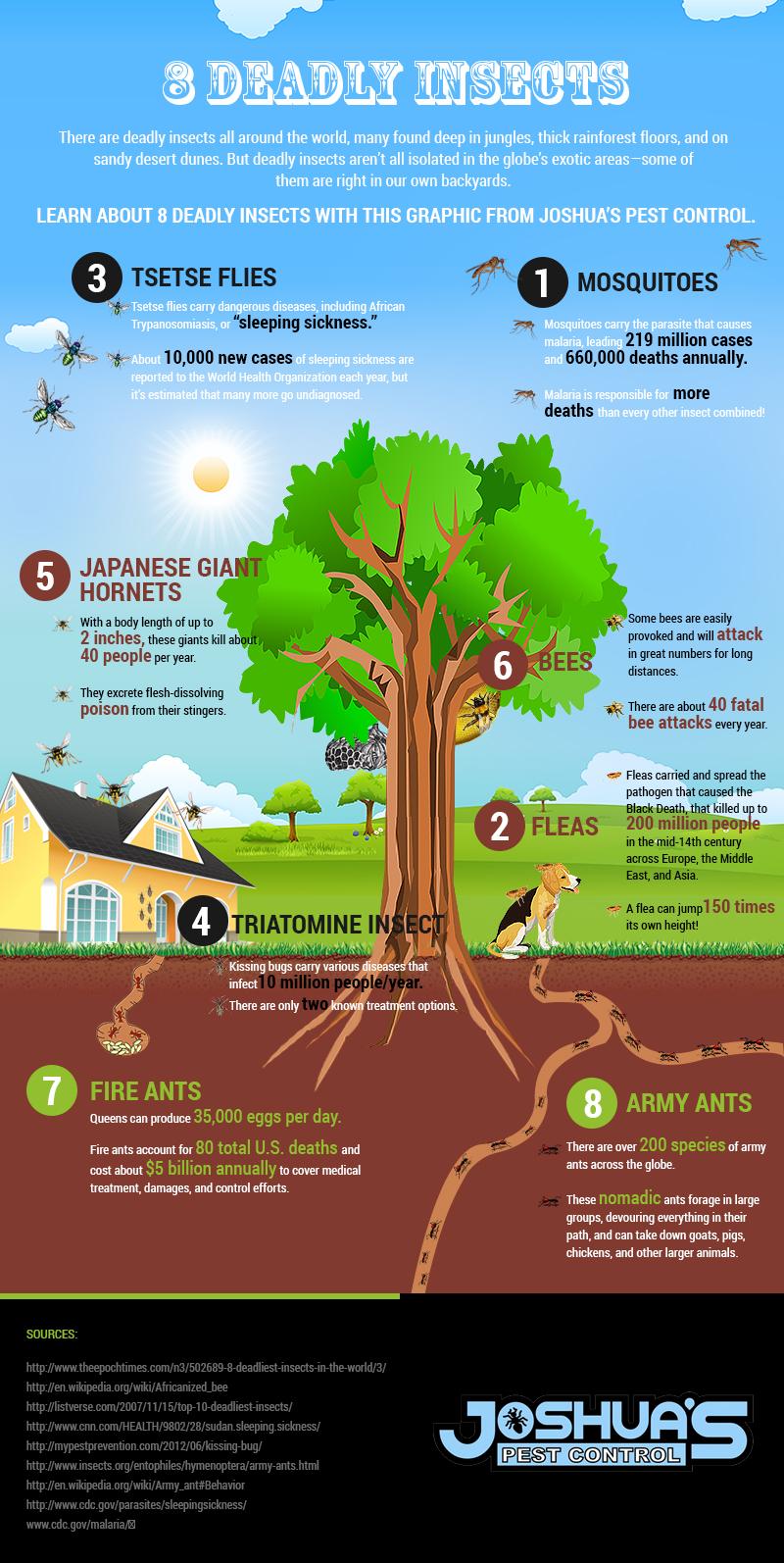Securing Your Yard From Pests: Methods For A Pest-Free Outdoor Area
Securing Your Yard From Pests: Methods For A Pest-Free Outdoor Area
Blog Article
Read the Full Guide Created By-Castaneda Fyhn
Picture your garden as a haven, a place of peace and appeal. Nevertheless, the presence of outdoor parasites can promptly disrupt this ideal image. What if there were basic yet effective methods to maintain these undesirable visitors at bay and safeguard your garden sanctuary? By complying with a few useful suggestions and applying all-natural approaches, you can produce an unified outdoor room where your plants can thrive undisturbed.
Natural Pest Deterrents
To keep bugs far from your garden normally, plant fragrant natural herbs like mint and lavender. These great smelling plants not just include charm to your yard yet likewise function as reliable pest deterrents. Bugs like mosquitoes, flies, and even some garden-damaging bugs are repelled by the strong fragrances sent out by these herbs. Simply putting them tactically around your yard can aid produce a natural obstacle versus unwanted pests.
In addition to mint and lavender, take into consideration growing various other herbs like rosemary, basil, and lemongrass to additionally boost your garden's pest-proofing capacities. These herbs not only act as all-natural repellents but also have the added advantage of serving in food preparation or crafting home made treatments.
Strategic Plant Placement
Take into consideration the layout of your yard and the types of plants you need to strategically put them for maximum pest-proofing effectiveness.
Begin by grouping plants with comparable resistance to pests with each other. By doing this, you can produce an all-natural obstacle that deters bugs from spreading out throughout your garden.
Additionally, placing pest-repelling plants like marigolds, lavender, or mint near even more at risk plants can help protect them. hobo spider treatment , such as sunflowers or corn, can serve as a shield for much shorter plants versus parasites like bunnies or ground-dwelling insects.
Keep in mind to leave adequate area between plants to boost air flow and decrease the danger of illness that pests might bring.
Moreover, think about growing strong-smelling natural herbs like rosemary or basil near vulnerable plants to puzzle parasites' detects and make it harder for them to find their targets.
Reliable Parasite Control Methods
For combating garden parasites effectively, applying a multi-faceted insect control method is necessary. Begin by motivating natural killers like birds, ladybugs, and praying mantises to help keep pest populaces in check. Introducing plants that draw in these helpful pests can help in insect control. Furthermore, practicing good yard hygiene by removing particles and weeds where insects might hide can make your yard less welcoming to unwanted site visitors.
Think about using physical barriers such as row cover fabrics or netting to shield vulnerable plants from pests like caterpillars and birds. Using https://how-to-remove-a-snake-fro95162.kylieblog.com/27034777/client-success-stories-real-life-knowledge-with-parasite-pest-control-specialist-services like neem oil or insecticidal soap can also be effective against particular parasites while being less hazardous to valuable insects and the setting. It's crucial to turn your plants each period to stop the accumulation of parasite populaces that target certain plants.
Frequently evaluate your plants for signs of pest damages so you can take action quickly. By incorporating these approaches and remaining alert, you can effectively regulate yard bugs and delight in a flourishing, pest-free garden.
Conclusion
So, there you have it - with the ideal methods, you can maintain pesky exterior parasites far from your garden and aid your plants grow.
Did you recognize that planting mint has been revealed to fend off insects and other pests, minimizing the need for unsafe chemicals by up to 60%?
By integrating natural deterrents and wise planting strategies, you can produce an attractive and pest-resistant garden oasis for you to delight in.
